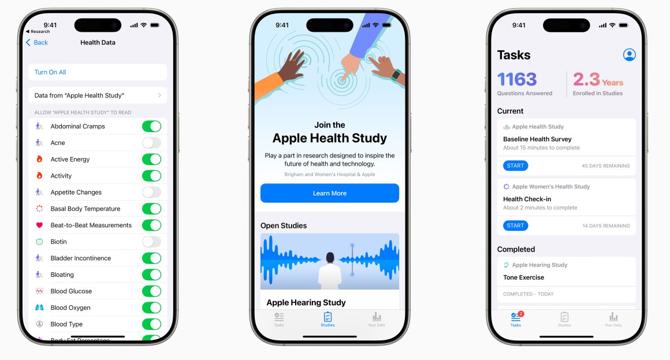The Verge
1M
413

Image Credit: The Verge
Apple launches wide-ranging health study to help develop future features
- Apple has launched a new research study, the Apple Health Study, which gathers data from iPhones, Apple Watches, and AirPods to explore relationships between different areas of health.
- The study will be conducted in collaboration with Brigham and Women’s Hospital and will focus on various health topics, such as activity, aging, cardiovascular health, cognitive health, and more.
- With a broad scope and potential scale, the Apple Health Study aims to uncover new connections in health research that may have been previously overlooked.
- The study, expected to last about five years, will include data from a vast and diverse cohort of Apple product users, enabling researchers to accelerate discovery and progress.
- By including a wide range of participants, the study may help fill in information gaps and address disparities in healthcare that arise from limited participant pools in traditional clinical studies.
- One of the goals is to develop proactive features based on study findings, such as early detection of changes in hearing linked to reduced cognitive decline.
- Apple's track record of implementing features from health research includes the recent hearing test feature in AirPods, derived from the Apple Hearing Study.
- While tangible outcomes from the Apple Health Study may take a few years to materialize, it is expected to lead to the development of various health-related features in Apple products.
- The study's principal investigator, Calum MacRae, is optimistic that the study's scale and diversity will significantly impact the pace of medical discovery and improve healthcare interventions.
- Apple's holistic approach to health research aims to use data from its devices to drive informed decisions about product features and enhancements, guided by scientific evidence.
Read Full Article
24 Likes
For uninterrupted reading, download the app